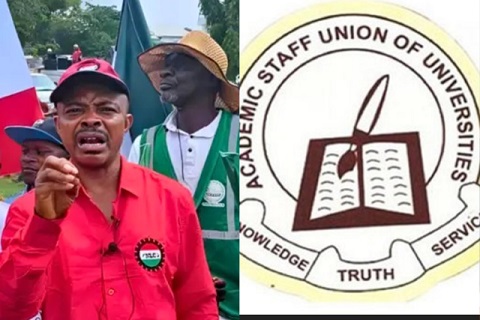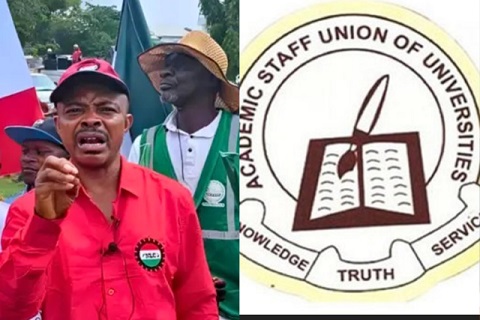NLC Gives FG Four Week Ultimatum to Suspend ASUU Strike

The Nigeria Labour Congress has given an ultimatum to the federal government to end the ongoing strike by the Academic Staff Union of Universities.
NLC gave Tinubu’s government a four-week ultimatum to conclude negotiations with all unions representing tertiary institutions, warning of nationwide industrial action if talks fail.
NLC President Joe Ajaero, speaking during an interactive session with labour correspondents in Abuja, condemned the government’s “no-work-no-pay” policy, describing it as punitive against members of the Academic Staff Union of Universities (ASUU) who embarked on a nationwide strike.
“We are giving the federal government four weeks to conclude all negotiations in this sector. Talks have started with ASUU, but the issues go beyond them,” Ajaero said.
“If no resolution is reached within four weeks, the NEC will convene, and all unions in the country will mobilise to address this comprehensively. The era of threatening unions is over.”
He further stressed a principle of “No Pay, No Work,” asserting that workers should not bear the brunt of failed agreements. “Most strike actions in this country stem from the government’s failure to honour agreements,” Ajaero added.
The warning comes amid the ongoing ASUU strike, announced by its National President, Professor Chris Piwuna, citing unresolved issues including staff welfare, infrastructure, salary arrears, and the full implementation of the 2009 ASUU-FGN agreement.
Despite the government releasing N50bn for earned academic allowances and allocating N150bn in the 2025 budget for a needs assessment, ASUU deemed the measures insufficient. The union demands full implementation of the 2009 agreement, payment of withheld salaries, arrears, and cooperative deductions, as well as sustainable funding for universities.
The NLC reaffirmed its solidarity with ASUU and other tertiary education unions, calling for collective action to protect workers’ rights and ensure the continuity and quality of public tertiary education in Nigeria.
